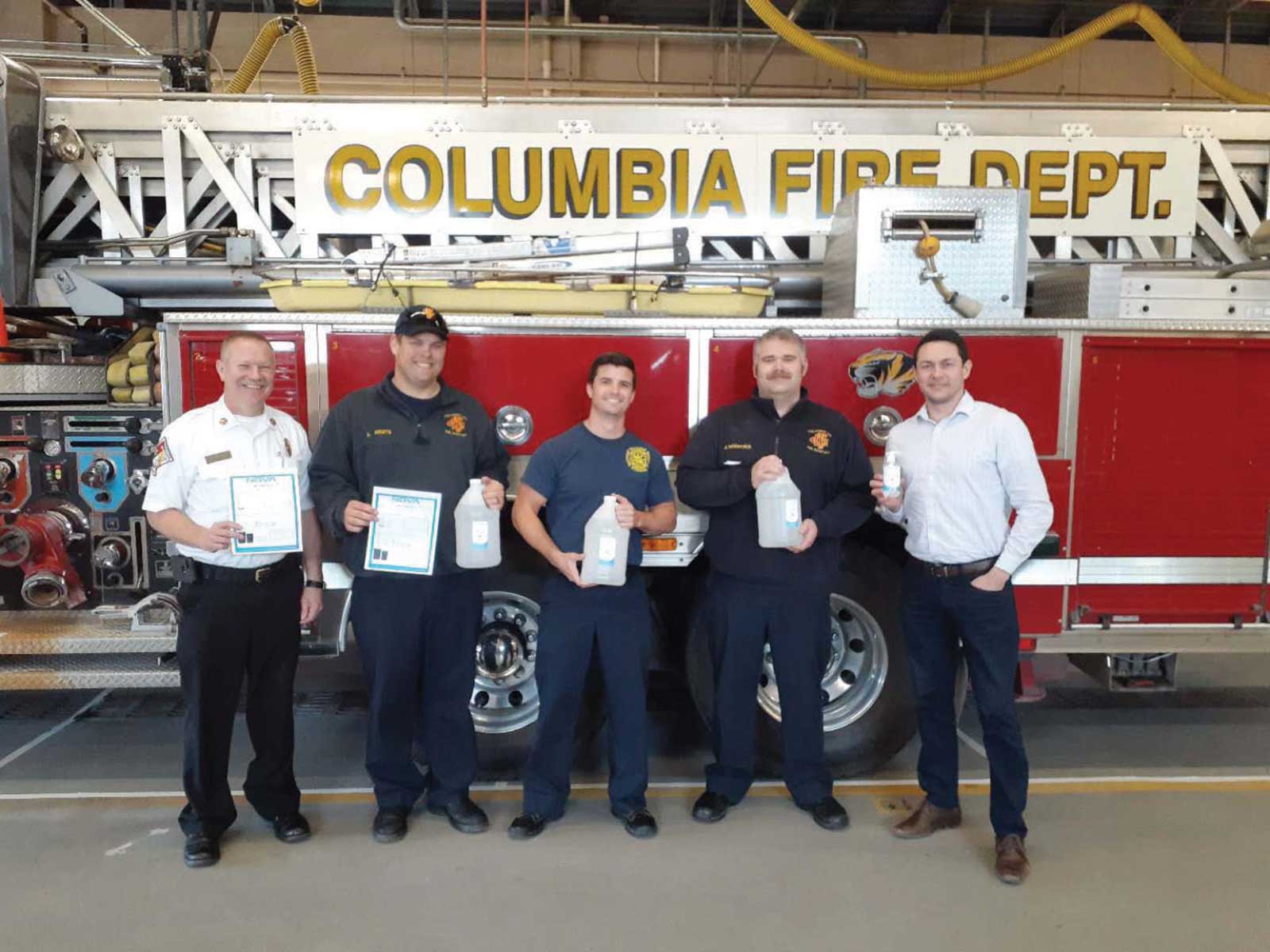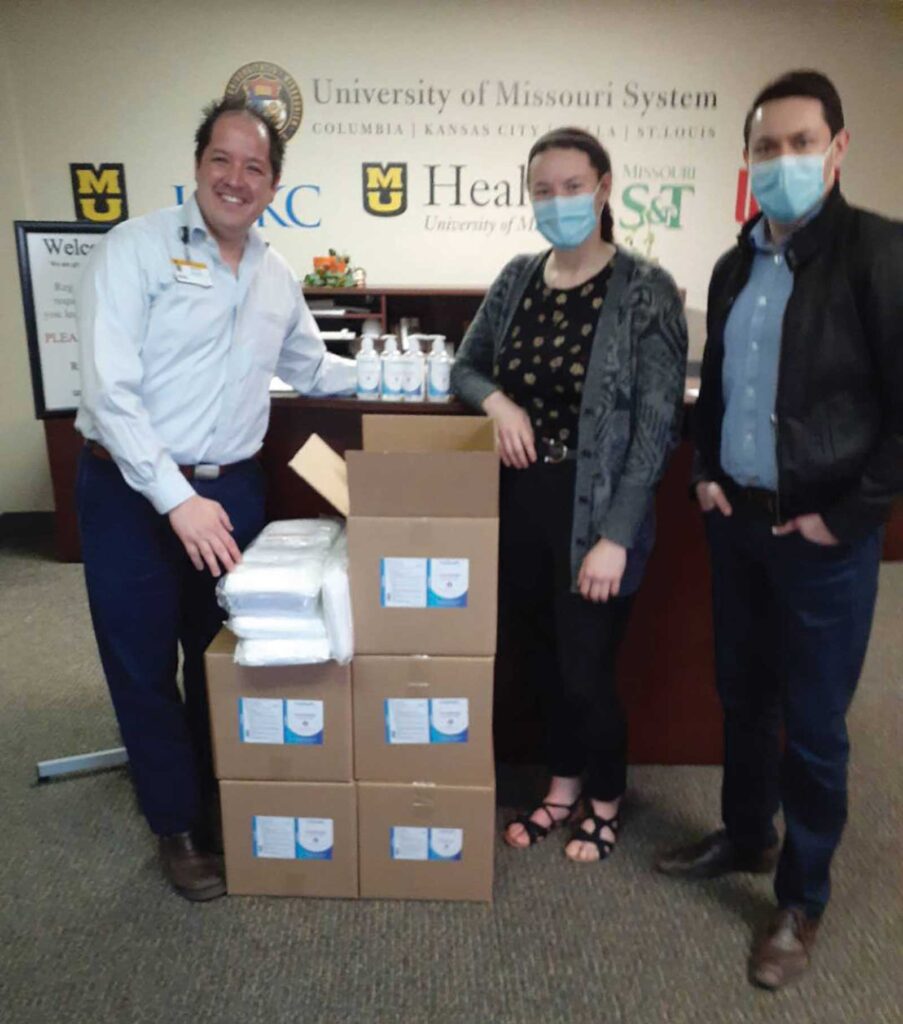Behind the Photographs

What really goes into REDI’s projects for the community that you don’t see in photographs or videos.
Regional Economic Development Inc. — known to most people as REDI — is a local collaboration that has worked to benefit the Columbia and Boone County community since its founding in 1988. Yet, many people still ask: What does REDI do?
It’s not a short answer, as REDI has a variety of programs and works with many partners to serve the community. REDI’s mission is to help create quality, living-wage jobs that provide upward economic mobility for our residents and sustain a dynamic local economy. Some of the ways REDI collaborates to fulfill this mission come through business attraction, retention, and expansion strategic programs.
Attraction
REDI’s work to attract new businesses to the area may be its best well-known program. When large projects are successful, such as the Aurora Organic Dairy project, it captures the attention of the media. Pictures and videos of ground-breaking and ribbon-cutting ceremonies appear in the news. When they do, people often ask, “How does this process work?”
Attraction projects come about in several ways. Usually, REDI’s first interaction with a company is when REDI receives a request for proposal, or RFP, regarding the project. These can come directly from a company, from a consultant working for the company, or most often for us, from the Missouri Partnership, an economic development organization that serves the state as a whole. A company may contact the Missouri Partnership first to determine which communities in the state can meet its needs.
RFPs outline what a company is looking for in a location. Responding to RFPs requires extensive knowledge about the availability and cost of land and available buildings, infrastructure, utility capabilities, proximity to transportation, workforce, and more. RFPs often require short turnaround times. REDI staff members have been known to interrupt vacations to complete an RFP and not miss an opportunity for our community. REDI serves as a contact point for the inquiring company throughout the attraction process, coordinating site visits and information responses from many entities across the community.
Confidentiality
Sometimes REDI projects are viewed as being “secret,” but they are not. They are, however, confidential. REDI staff and others involved in the project usually must sign non-disclosure agreements to not share details about the project. This protects the company in a number of ways — it keeps the company’s future plans confidential until decisions are finalized and protects the company’s proprietary processes.
Throughout the progression of projects, updates on the progress of the project are reported at REDI’s monthly public board meetings, although company names aren’t revealed. These updates include the expected amount of investment in the project, what type of land or building is being sought, the number of jobs the project plans to create, how fast the project appears to be moving, and how promising it looks that the company may choose Boone County for a location.
At the same time, REDI does due diligence on the project, including ensuring the company is acting in good faith, is in good financial standing, is compliant with any legal, regulatory, or environmental requirements, and is a good fit for our community overall. REDI also works to attract businesses that provide employees with living wages and benefits. Companies that sell products and services outside the immediate area are ideal, as that brings money into our economy and benefits the community as a whole.
Business Retention and Expansion
Business retention and expansion is another strategic hallmark of REDI’s work. Companies already operating in the community are critically important to our residents and our economy. Companies that have operated here for a long time, which we refer to as legacy companies, sometimes need support to modernize their plants or compete for new production lines for updated products.
The Kraft Heinz plant is an example of a successful expansion and retention project. Through modernization of the plant, Kraft Heinz was able to add an additional hot dog production line in Columbia and retain 375 employees. Kraft Heinz’s other hot dog production plants were later closed, making the Columbia plant the sole manufacturer of Oscar Mayer hot dogs in the U.S.
Another example is Nanova Inc., a local biotechnology company. When the pandemic began to affect businesses in 2020, Nanova reached out to REDI for support in pivoting to the production of personal protective equipment. REDI connected Nanova with state programs that helped it quickly start and scale production of Novagel sanitizing hand gel and sanitizing wipes. With REDI’s help, Nanova was able to keep its business viable during the challenges of 2020 while producing much-needed PPE for the community.

REDI also coordinates with local businesses to identify skill gaps and partners with educational institutions to ensure training programs meet employers’ needs. REDI offers existing businesses the opportunity to share information at REDI Board of Directors meetings and provides ongoing support to businesses, including connections to local and state support.
Incentives
Incentives are an important tool for business attraction and retention or expansion projects. Incentives are used across the nation to assist companies to locate or remain in communities. Typically, the first contact from a company, the RFP, requests information on incentives. Communities without incentives to offer are often eliminated from consideration for projects.
Columbia and Boone County offer one incentive program: the Boone County Chapter 100 Revenue Bond program. First adopted by the county in 2005, it has been approved for use on five projects — four of which were for companies already operating here in full or in part.
The first company to make use of the Chapter 100 program was ABC Laboratories. ABC Labs used the program as an incentive to build a new pharmaceutical research lab at Discovery Ridge Research Park rather than locate the lab out of state. The incentive offered a tax abatement of 50% over 10 years with a requirement that ABC Labs retain 224 jobs and create 50 new jobs for a total of 274 jobs. At the end of the 10-year abatement period, ABC Labs had 370 employees. And even with the abatement, over the 10 years, ABC Labs’ Discovery Ridge facility paid a total of $3,674,670.87 to our local taxing districts. These funds, and all future taxes collected from the facility (now owned by Eurofins BioPharma Product Testing), would have been received by another community without the Boone County Chapter 100 Revenue Bond program as an incentive.
Collaboration
Collaboration is the heart of REDI. REDI brings together the City of Columbia, Boone County, MU, local businesses, organizations, educational institutions, municipalities, service agencies, and more. REDI’s mission spelled out 30 years ago is still the focus of REDI’s work today: Increase economic opportunities, maintain our community’s superior quality of life, recruit new businesses, retain existing business and assist with expansion, and support new business startups. These successful businesses create and retain jobs for our community, and the companies and their employees contribute to the tax base that supports schools, libraries, roads, public safety, and other services. REDI’s ongoing support of business in ways big and small sustains our dynamic local economy and ensures a thriving community for us all.


